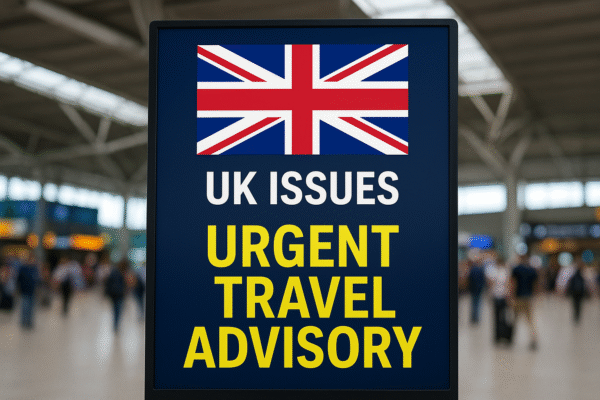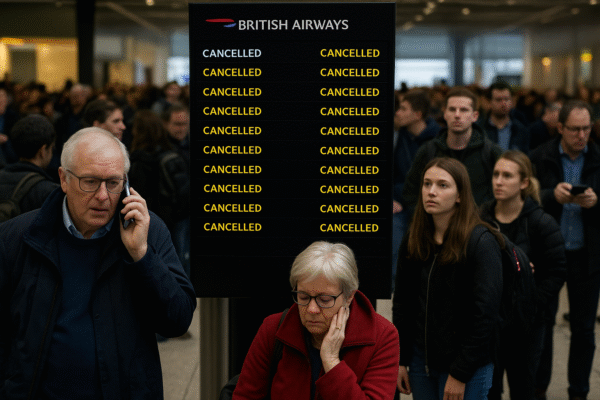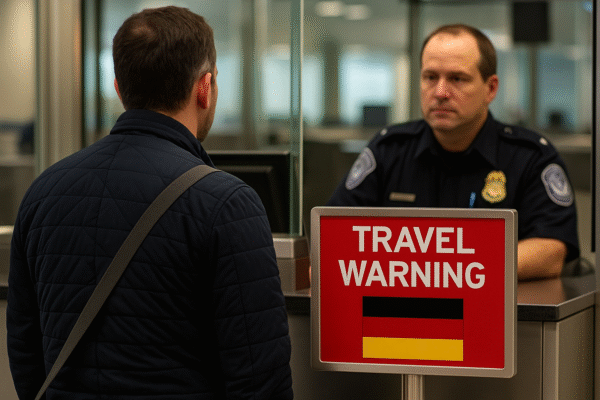Germany has issued a significant update to its official travel advisory concerning the United States. This follows a series of incidents where German citizens were detained by U.S. immigration authorities, despite holding valid travel documents. The update stresses that possession of a visa or ESTA approval does not guarantee automatic entry into the U.S., as border control officials have the final authority.
The revised advisory serves as a timely warning for German nationals planning trips to the United States. It reflects increasing concerns over strict and unpredictable border procedures, making it essential for travelers to be fully informed before departure.
Changes in U.S. Entry Requirements
The new guidance highlights that visas, ESTA approvals, or participation in the visa waiver program only allow travelers to approach U.S. borders. Entry decisions, however, rest entirely with border officials. Immigration officers may deny entry for reasons ranging from incomplete documentation to perceived discrepancies in travel purposes.
This marks a shift from the earlier assumption that completing the ESTA process or securing a visa was sufficient. Now, travelers are advised to prepare for more rigorous checks, longer waits, and the possibility of additional questioning.
German Citizens Detained
The update was prompted by the recent detention of three German nationals in the United States. Two have since been released and returned to Germany, while one remains in custody with consular support. These cases have raised concerns about consistency in immigration enforcement and underscored the risks of assuming smooth entry even with proper paperwork.
These incidents highlight the unpredictable nature of U.S. border decisions and emphasize that even well-prepared travelers may face challenges.
Stricter U.S. Immigration Policies
The detentions coincide with broader shifts in U.S. immigration policy. Current measures include enhanced border checks, stricter enforcement of entry requirements, and expanded questioning of travelers under the visa waiver program.
Officials are prioritizing security, leading to a heightened likelihood of denial at ports of entry. Travelers who previously faced minimal scrutiny under ESTA or visa programs now find themselves subject to more detailed inspections.
ESTA Approval: What It Really Means
For many Germans, ESTA has been a convenient system to visit the U.S. without a traditional visa. However, the updated advisory makes clear that ESTA approval alone does not grant the right of entry. Border authorities maintain the right to deny admission, regardless of ESTA or visa status.
This means travelers must not assume approval equals entry. Instead, they should expect additional verification and prepare relevant documents to support their travel purpose.
Practical Advice for German Travelers
The German Foreign Office advises citizens traveling to the U.S. to take the following precautions:
- Ensure all documents are accurate and valid: Check passport details, ESTA approvals, and visa information before traveling.
- Prepare for questioning: Be ready to explain the purpose of the trip, provide accommodation details, and show return flight confirmations.
- Allow extra time at borders: Increased scrutiny may result in longer wait times.
- Stay updated: Regularly monitor official advisories and remain aware of changes in U.S. immigration policy.
- Seek assistance when needed: German consulates in the U.S. are available to support citizens facing unexpected difficulties.
International Response
Germany is not alone in issuing new guidance. Several European nations and Canada have also warned their citizens about the possibility of increased checks and detentions at U.S. borders. This reflects a wider global concern about tightened immigration practices that affect travelers even from visa waiver countries.
Conclusion
The updated German travel advisory serves as a crucial reminder that entering the United States has become increasingly complex. Holding a visa or ESTA approval is no longer a safeguard against detention or denial at the border.
As U.S. border controls grow stricter, German travelers must exercise caution, ensure their documentation is flawless, and prepare for questioning. Staying informed and taking preventive steps can minimize the risk of unexpected delays or detentions.
For German citizens, the new reality is clear: travel to the U.S. requires not only proper paperwork but also readiness for more intense border scrutiny than in the past.
For more travel news like this, keep reading Global Travel Wire

















